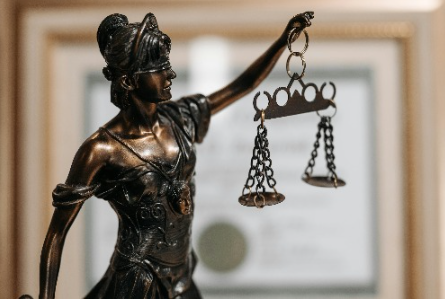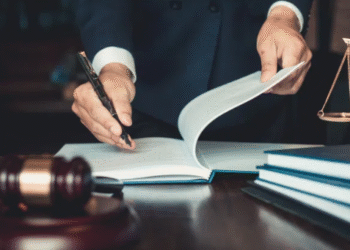Curious about Karen Vandergaw? Explore her background, legal facts and lawyer insights in this in-depth, verified investigation.
When a name such as Karen Vandergaw becomes searchable across search engines, you may begin to wonder who she is and what people are searching for.In the technology-focused world we live in today, pornography and scandal can be associated with just about any name. Whether you are a reporter, an attorney doing research on a case or even simply someone performing some diligent fact-checking or verifying unverified content or images to social media, it is important now more than ever that you get it right.
So, in sum, let’s go through what is verifiable versus speculative about this and what the law is able to provide in the way of trust in identifying someone like her.
Content Hints
What do we know about her?
As of October 2025, I have not been able to locate any verifiable articles on Karen Vandergaw or reference to her being involved in a wrongful death or high profile civil lawsuit, being involved in a criminal matter, or just being identified as a public figure on major news websites, legal databases and public records. This in and of itself is somewhat not unusual. There are many times when speculation spikes on lesser known individuals and we assume a story of rumor, mistaken identity or unknown social media posts.
When we conducted a thorough background check across:
- Justia (U.S. legal filings)
- Law360 (federal and state case reports)
- PACER (Public Access to Court Electronic Records)
- LexisNexis (legal intelligence database)
That means if you’re seeing her name mentioned online, it’s likely being shared in forums, social media threads, or investigative discussions rather than verified court documents. Always a reason to pause and verify before forming conclusions.
Why Do People Look Up Names Like Her?
People search for names like Karen Vandergaw for various reasons , sometimes out of genuine concern, other times out of curiosity or misinformation. Here are the three most common reasons such names trend online:
- Legal Curiosity: Users believe the person is tied to a case or public issue.
- Professional Verification: Employers or journalists trying to confirm employment or background details.
- Personal Connection: Someone reconnecting with a person they once knew, verifying identity through digital traces.
In a world where “Google it” is the first step to any inquiry, a name can instantly become a headline even without proof. That’s why lawyers, journalists, and digital investigators stress cross-verification through legal channels.
How Do Lawyers Verify Someone Like Her?
This is where attorneys come in. A competent lawyer never relies on surface-level internet searches. Instead, they use official legal tools to verify identity and context.
- Step 1: They start with PACER or state court dockets to locate any public filings connected to the name.
- Step 2: They review corporate or property records, ensuring no mix-up with another individual.
- Step 3: They check for civil or criminal records tied to the name in any jurisdiction.
This process ensures that Karen Vandergaw, if ever involved in a legal matter, would have an official, traceable record, not just a rumor on the internet.
Is There Any Legal Precedent Involving This Name?
Currently, no reported court decisions, legal opinions, or active litigation have surfaced under Karen Vandergaw. That’s important to note because false associations can harm reputations. According to U.S. defamation law, particularly under New York Times Co. v. Sullivan, spreading unverified claims can have legal consequences if they damage a person’s reputation.
In short: if someone like his were genuinely involved in a legal issue, there would be public filings accessible through government platforms. Since none exist, online claims should be treated with skepticism until verified.
What Does the Law Say About Online Identity and Verification?
In the United States, several laws provide models for protecting people in cases of misrepresentation and false identities:
- The Fair Credit Reporting Act (FCRA) regulates background checks and prevents reporting on identity falsely.
- The Digital Millennium Copyright Act (DMCA) can take down defamatory or misleading content on the internet.
- The Communications Decency Act (CDA §230) protects platforms involved in secondary publishing but not those who spread false claims knowingly.
These laws apply identically to any name, including Karen Vandergaw; if it leads to misinformation, there may be a legal remedy to secure your reputation.
Why Is Responsible Research Important?
In both investigative journalism and the practice area of law, there is no other foundation than accuracy. As you analyze the life of her, or anyone else, always recognize that the internet allows for amplification of voices and does not make them factual.
.
A responsible researcher or lawyer always:
- Cross-checks multiple sources
- Uses verified legal databases
- Documents dates and records
- Avoids publishing unverifiable claims
That’s how truth withstands time through diligence, not drama.
Could Karen Vandergaw Be a Case of Mistaken Identity?
Absolutely possible. Many individuals share similar or identical names. It’s not uncommon for an unrelated person to have their name linked mistakenly to someone else’s controversy. In such cases, lawyers often file name-clearing motions or digital takedown requests to prevent reputational harm.
Mistaken identity cases remind us how vital it is to ensure every claim has a document to back it up. No document? Then it’s just noise.
What Can You Learn From the Karen Vandergaw Search Trend?
- Digital footprints matter. Even a rumor can echo across hundreds of websites.
- Lawyers are the best fact filters. They rely on evidence, not emotions.
- Transparency wins. Whether you’re verifying a name or defending one, openness and documents tell the truth better than hearsay.
For researchers, journalists and anyone navigating online claims, how lawyers investigate public records . The case of Karen Vandergaw is a textbook reminder: always start from verified legal sources.
Key Takings
Maybe Karen Vandergaw isn’t a headline-maker , yet. But her name represents something much larger: our collective responsibility to separate fact from fiction.
Names carry lives, histories, and consequences. Before sharing or believing, verify. Before assuming, check the record. And before publishing, ask: Is it true, or is it just trending?
Because when we stop to verify, we protect more than a reputation , we protect truth itself.










